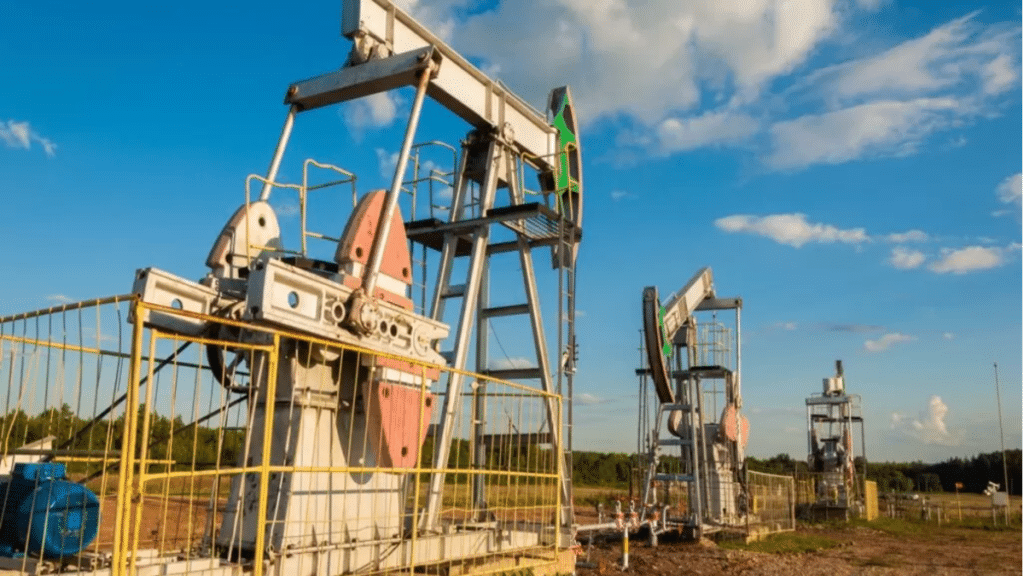In 2025, mineral rights are no longer just a footnote in property law—they’re becoming central to financial planning and energy strategy for landowners across the United States. With growing global demand for everything from oil and natural gas to lithium and rare earth elements, owning the rights to underground resources has never been more consequential.
Yet, navigating the complexity of mineral ownership in a volatile energy landscape is no small task. That’s where mineral rights brokers step in. These professionals offer the experience, network, and legal insight needed to extract maximum value from your subsurface assets—while shielding you from the risks that come with going it alone.
In this article, we’ll explore how mineral rights brokers can help you unlock the full value of your underground assets—even as the energy landscape shifts beneath your feet.
What Are Mineral Rights—and Why Are They So Valuable Today?
Mineral rights refer to the legal authority to extract, lease, or sell minerals found beneath the surface of a property. These rights can be distinct from surface rights, meaning you can own the land while someone else owns what lies underneath—or vice versa.
While surface rights pertain to what happens on the land (like farming or building), mineral rights are concerned solely with subsurface resources. This separation is common in states like Texas, New Mexico, and North Dakota, where mineral wealth has long been exploited.
So why the spike in interest now? The energy market is undergoing a transformation. Countries are seeking domestic sources of strategic minerals to power everything from electric vehicles to data centers. Fossil fuel exploration isn’t going away either—especially in shale-rich regions where fracking remains active. On top of that, rare earths and lithium are becoming increasingly attractive investment targets.
Before moving on, it helps to understand what these rights typically cover and how they can be monetized:
- Types of minerals covered: oil, natural gas, coal, lithium, rare earth elements, salt, helium, and more
- How mineral rights can be leased or sold: leases allow you to retain ownership and receive royalties; sales involve transferring ownership outright
- Common sources of mineral rights: inherited from family, purchased separately from land, retained by corporations during land sales
Who Are Mineral Rights Brokers—and What Exactly Do They Do?
What is a mineral rights broker? A mineral rights broker is a licensed intermediary who specializes in connecting mineral owners with credible buyers or lessees. Their job blends real estate knowledge, legal understanding, and negotiation skills—all focused on maximizing the financial outcome of your mineral assets.
In many ways, brokers operate as advisors, middlemen, and deal coordinators. They help you assess what your rights are worth, position your offer in the best light, and secure favorable terms—whether that means royalties, cash upfront, or both.
Brokers typically assist with:
- Evaluating land and existing rights: determining whether you own full or partial rights, and what they’re worth
- Marketing mineral rights to buyers: presenting your rights to energy companies or investment groups
- Negotiating lease or sale terms: advocating on your behalf to secure optimal returns
- Verifying offers and screening buyers: ensuring you don’t fall victim to predatory or lowball offers
- Coordinating with attorneys and landmen: keeping the entire deal process compliant and efficient
Why Would You Need a Broker Instead of Selling Rights Yourself?

At first glance, selling mineral rights might seem as simple as selling land—but it’s not. Doing it yourself can expose you to undervalued deals, deceptive contracts, and legal pitfalls. Brokers bring clarity and protection to a process that is often opaque and legally dense.
Here’s why going solo is risky:
- Lack of market visibility: individual landowners rarely have access to the full range of potential buyers
- Potential for undervaluing assets: without proper valuation, you might sell at a fraction of market worth
- Legal complexities and paperwork: mineral rights contracts are full of industry-specific terms and clauses
- Risk of bad-faith buyers: some buyers exploit inexperienced sellers through hidden terms or delayed payments
- Access to exclusive buyer networks: brokers connect you to vetted buyers who aren’t visible to the public
How Do Brokers Help You Maximize Value in a Volatile Energy Market?
Timing and negotiation are everything in mineral rights deals. A broker’s ability to read market shifts and capitalize on them can mean the difference between a modest check and a life-changing payout.
In 2025, energy prices and mineral demand are swinging rapidly, driven by global events, regulation, and the green energy transition. Brokers track these dynamics closely to help you time deals when pricing is favorable and competition is high.
They also manage competitive bidding processes and help you evaluate different types of deals based on your financial goals. For instance, a lease may offer long-term royalty income, while a sale may be better for immediate cash needs.
Here’s how brokers help you extract the most value:
- Timing deals during price surges: holding off or accelerating a deal based on real-time commodity pricing
- Comparing lease vs. sale for long-term returns: aligning deal type with your risk tolerance and income goals
- Understanding royalty structures: interpreting how royalties work and where the value lies
- Identifying bonus payments and incentives: uncovering hidden compensation like signing bonuses or drilling payments
What Does the Mineral Rights Deal Process Look Like Step by Step?

Working with a broker adds structure and protection to the mineral rights transaction. It’s not just about finding a buyer—it’s about managing the full lifecycle of the deal, from discovery to closing.
The process typically unfolds like this:
- Initial land evaluation: assessing what you own and what rights are attached to your property
- Title search and ownership verification: confirming legal ownership and identifying any shared or partial interests
- Determining market value: comparing similar deals and market trends to estimate worth
- Preparing and marketing the rights: creating professional listings and reaching out to potential buyers
- Fielding offers and negotiating: reviewing terms and countering low or risky offers
- Reviewing legal documents: ensuring contracts protect your interests and comply with regulations
- Closing the deal and transferring rights: finalizing paperwork and receiving payment
What Should You Know About Lease Agreements vs. Selling Your Rights?
When it comes to monetizing mineral rights, landowners generally face two options: leasing or selling. Each comes with tradeoffs, and the best choice depends on your financial goals and risk appetite.
- Lease = retain ownership, get royalties: you maintain mineral rights and receive a percentage of production revenue
- Sale = one-time payout, no future income: you give up all rights in exchange for a lump-sum payment
- Leases include terms like length, royalty %, shut-in clauses: these determine how long the lease lasts and what you’ll earn
- Sales include upfront pricing but forfeit future upside: ideal if you want cash now and are willing to give up potential future income
What Are the Key Terms in Mineral Rights Contracts You Must Understand?
Contracts in mineral rights deals can be packed with industry-specific language. Understanding the terms before signing is essential to avoid unfavorable clauses or misinterpreted obligations.
Here are some of the most common terms you’ll encounter:
- Royalty rate: the percentage of production revenue you’ll receive from a lease
- Signing bonus: an upfront payment made when the lease is executed
- Shut-in clause: allows a company to pause production while still maintaining lease rights
- Pooling/unitization: combines your minerals with neighboring tracts for shared development
- Surface use agreement: outlines how the operator can access and impact your land
- Term length and renewal clauses: specify how long the lease is valid and if it can be extended
What Factors Influence the Value of Your Mineral Rights?
Not all mineral rights are created equal. A combination of geological, geographic, and economic factors determines what your rights are worth.
Key value drivers include:
- Location: rights in productive basins like the Permian command higher prices
- Depth and richness of mineral deposit: deeper, richer deposits typically yield more value
- Nearby drilling activity: active development near your land boosts interest and value
- Infrastructure access: proximity to pipelines, roads, and processing plants increases deal potential
- Commodity prices and forecasts: current and projected prices of oil, gas, or lithium directly impact valuation
What Are the Risks of Working with the Wrong Buyer or Going Without a Broker?
While the right buyer can turn your mineral rights into a powerful asset, the wrong one can leave you with regret—or worse, legal issues.
Watch out for these common pitfalls:
- Predatory offers: some buyers offer below-market prices to uninformed sellers
- Hidden contract clauses: unfavorable terms buried in dense legal language
- Misrepresented deal terms: verbal promises that don’t match the written contract
- Difficulty in getting paid: unreliable buyers may delay or dispute payments
- Long-term loss of potential royalties: selling without understanding royalty value could cost you future income
How Are Brokers Paid—and Is It Worth the Cost?
Most mineral rights brokers operate on a commission-based model, typically earning a percentage of the final deal value—often 5% to 10%. This aligns their incentives with yours: the more you make, the more they earn.
For example, if your mineral rights sell for $250,000 and the broker’s fee is 6%, you would pay $15,000. While this fee may seem steep, a skilled broker might increase your deal’s value by far more than their cut—making their services a smart investment.
How Can You Choose the Right Mineral Rights Broker?

Not all brokers offer the same expertise or integrity. Choosing the right one can dramatically affect your outcome.
Evaluate candidates using this checklist:
- Experience in your region or mineral type
- Transparent fee structure
- Reputation and reviews from past clients
- Licensing and certifications, where required
- Clear communication and regular updates
- Access to a wide buyer network
What Questions Should You Ask a Mineral Rights Broker Before Signing Anything?
Before hiring a broker, treat the process like a business interview. Ask pointed questions to assess their capabilities.
- How do you determine value?
- Who pays your fee and when?
- What is your marketing strategy?
- Can you provide recent comparable deals?
- How long will the process take?
What Role Do Attorneys and Landmen Play in the Deal Process?
Mineral rights deals are often a team effort. In addition to the broker, attorneys and landmen play vital roles in ensuring your interests are protected.
- Attorneys = review contracts, handle title issues, and provide legal guidance
- Landmen = conduct research on ownership, titles, and land records
- Broker = coordinates the entire deal, acting as your strategist and negotiator
Are Mineral Rights Still a Good Investment in Today’s Energy Market?
Absolutely—but it depends on what you own and how you handle it. As of 2025, strategic minerals like lithium and cobalt are gaining value, while oil and gas remain strong in active basins.
But with increasing regulatory pressure and ESG scrutiny, it’s crucial to view mineral rights as long-term assets that require smart management and timing—especially as new energy sectors reshape demand.
How Are Renewable Energy Companies Changing the Landscape for Mineral Rights?
Clean energy isn’t just transforming power grids—it’s reshaping land value and mineral demand. Brokers now work on deals involving:
- Land value rising near battery material zones
- Competition between oil & green energy firms for drilling rights
- Complexity of environmental regulations affecting project approvals
This shift makes broker expertise more essential than ever, especially for landowners who may hold resources tied to the energy transition.
What Should You Watch Out for in 2025 and Beyond?
Looking forward, several trends are reshaping how mineral rights are valued, marketed, and protected:
- Rising interest in strategic minerals like lithium, nickel, and rare earths
- New regulatory reforms around land and mineral transactions
- Increased scrutiny on ESG impacts from both public and private entities
- Blockchain-based land record systems improving transparency
- AI-powered land evaluation tools optimizing mineral value predictions
Conclusion
In a market defined by change, uncertainty, and opportunity, mineral rights brokers offer landowners something increasingly rare: clarity and leverage. By guiding you through valuations, legal hurdles, and negotiation, the right broker transforms your mineral rights from buried potential into tangible wealth.
Whether you’re holding oil, gas, lithium, or something else entirely, working with the right broker could mean the difference between a one-time deal—and a legacy.
